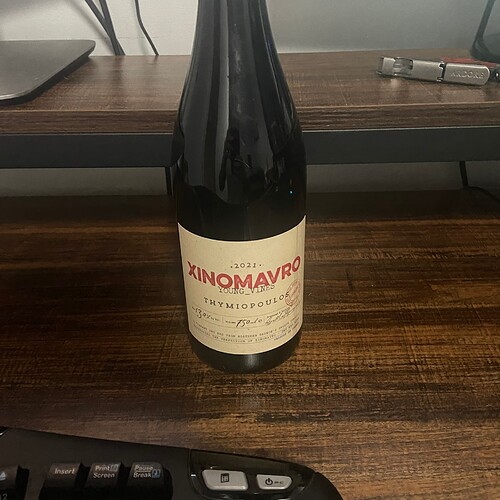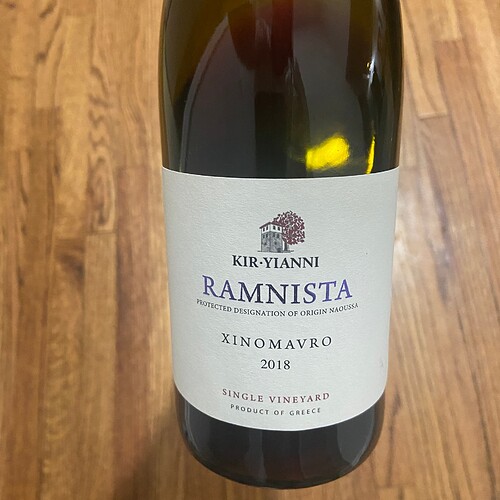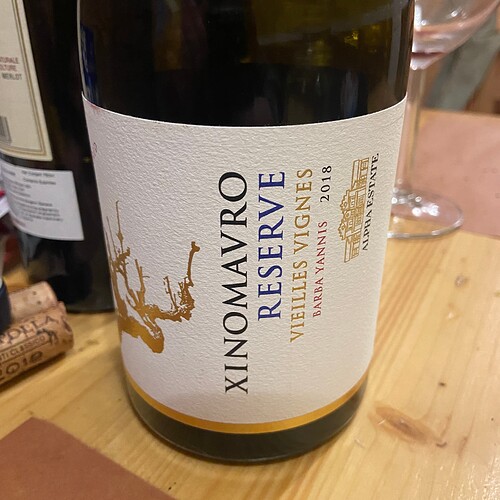Greek wines -
2022 Sclavos Vino di Sasso, Robola (organic) - This was good, striking for freshness, salinity, minerality, lemon. With a touch more intensity and a longer finish, could have been amazing. Still nice, rated 86.5, drink up.
2021 Domaine Glinavos Paleokerisio, Debina / Vlahiko (organic) - This is listed as a semi-sparkling wine of Ioannina. Two new grapes I’ve never heard of in one bottle, and it’s outstanding! It feels almost fully sparkling, the acidity is zingy, lots of Granny Smith apple as well as a touch of lime, harmonious, excellent balance. Rated 91.5. It’s bottled in a squat 500ml. I’ll be buying this for quality and originality, looking forward to serving it blind to some unsuspecting geeks.
2020 Domaine Zafeirakis Limniona (organic) - My first taste of a red from my Rosé discovery of last year, first red Limniona, and excellent.
The aromas are red fruit and a surprising note of oak, well integrated. The texture is both light and solid, vivid acidity, good earthiness. Tastes like a distant relative of a fine Chianti. Rated 91.5, could improve for a few years.
2021 Haritatos Madamoiselle, Mavrodaphne (organic) - Eileen asked for the warmest red BTG, our waitress didn’t hesitate… a good call. Plump black fruit with enough acidity to balance, I’m guessing about 14% alcohol, carried with finesse. A very Mediterranean feel to this, there are some herbal notes that complemented the mountain greens and roasted celeriac. Rated 88.
2022 Makarounas En Arhi Cabernet Franc (organic) - We’d had 4 half glasses, I needed another sip at the end, gave this a try. I’m not a big Cab Franc fan, still not. It’s medium bodied, OK texture, but the flavors are kind of lean and quite green. I’m OK with the olive, but the bell pepper is strong and out of place. Rated 82.
I have to once again extol Taverna Khione in Brunswick, ME. Busy for a Tuesday night, with an even more varied crowd than usual (a tall young black man in a full-length gray coat with gold buttons, hat, but without the logo… a confederate general’s uniform… that was a new one). The food, as always, Michelin * quality.
Dan Kravitz


